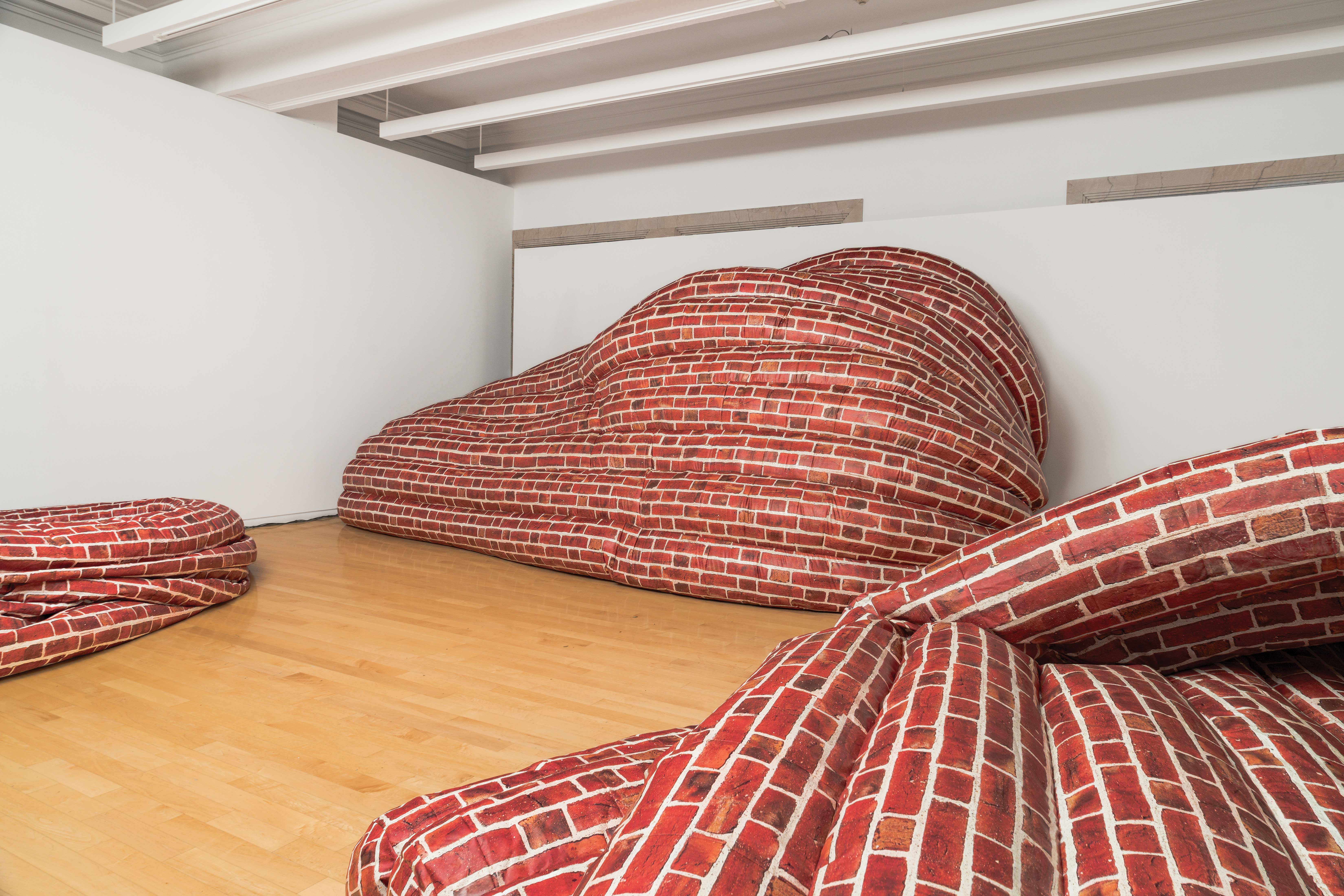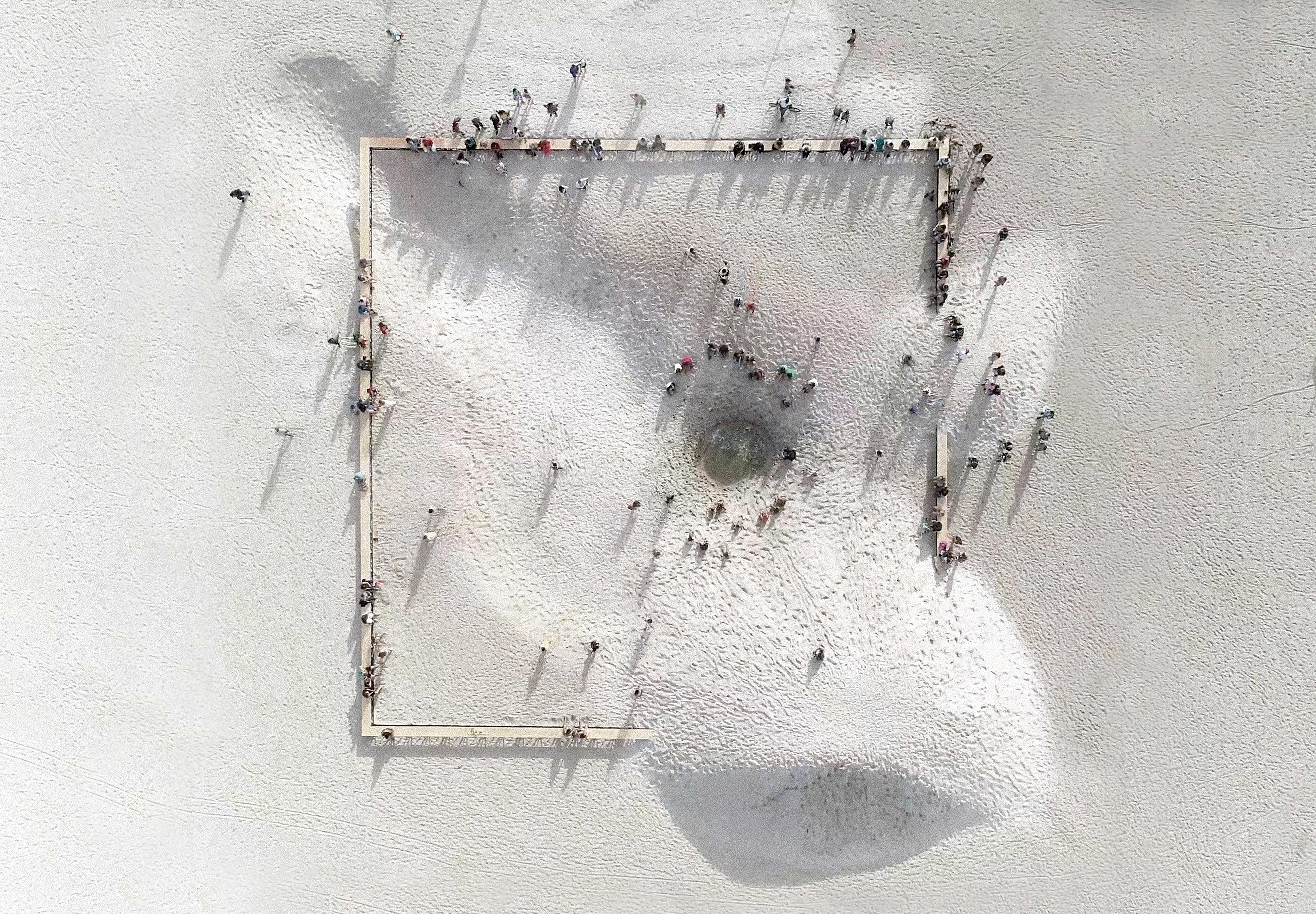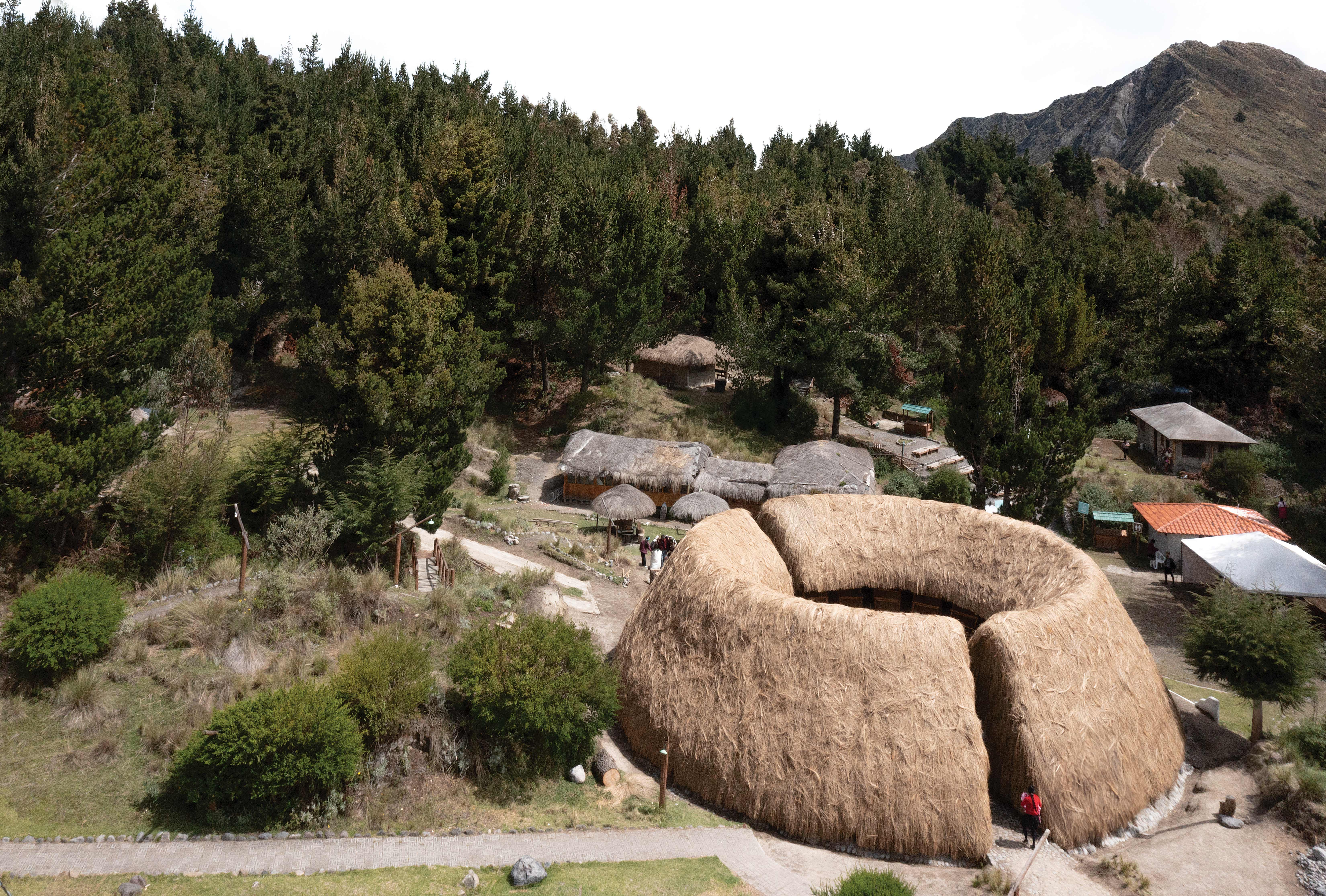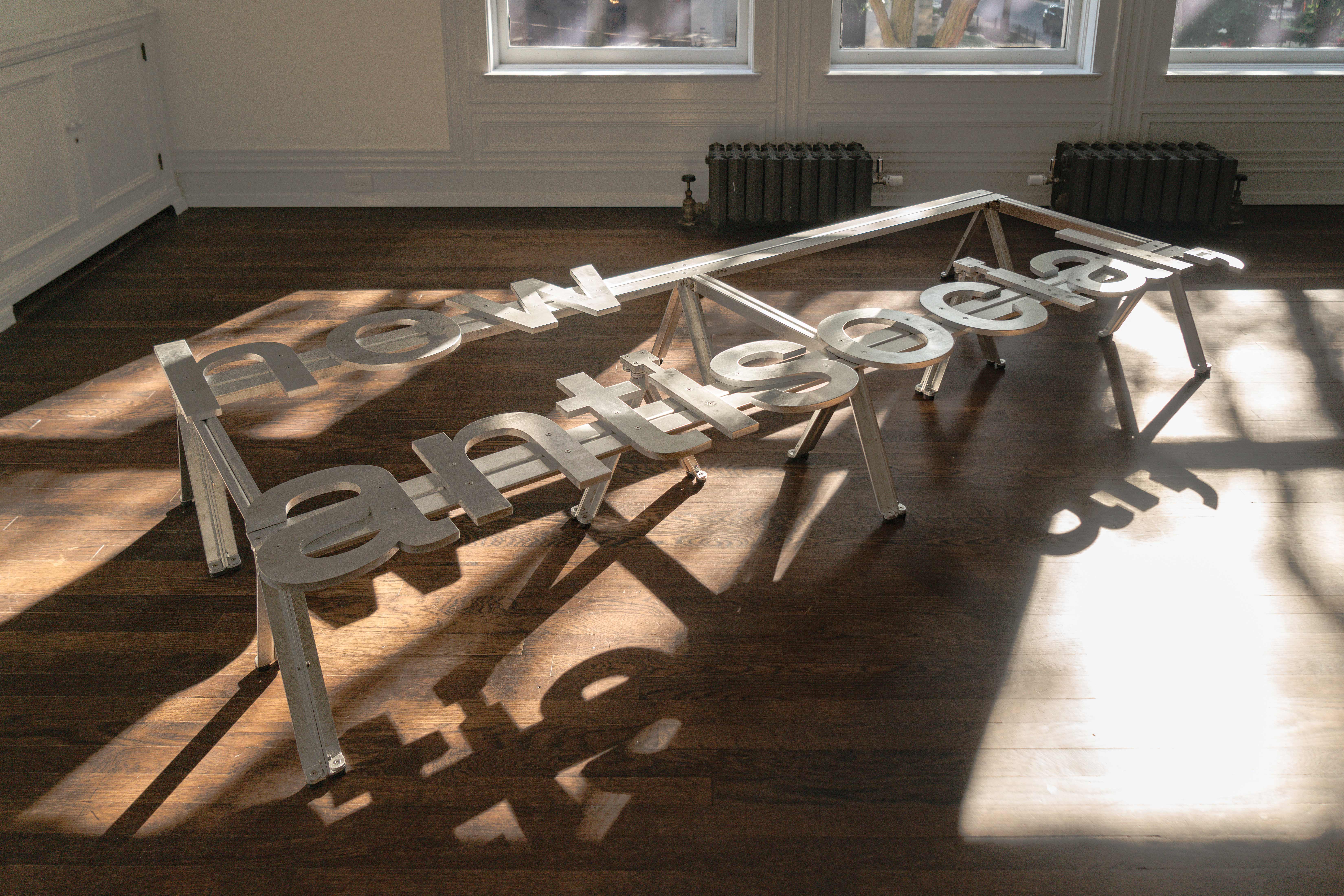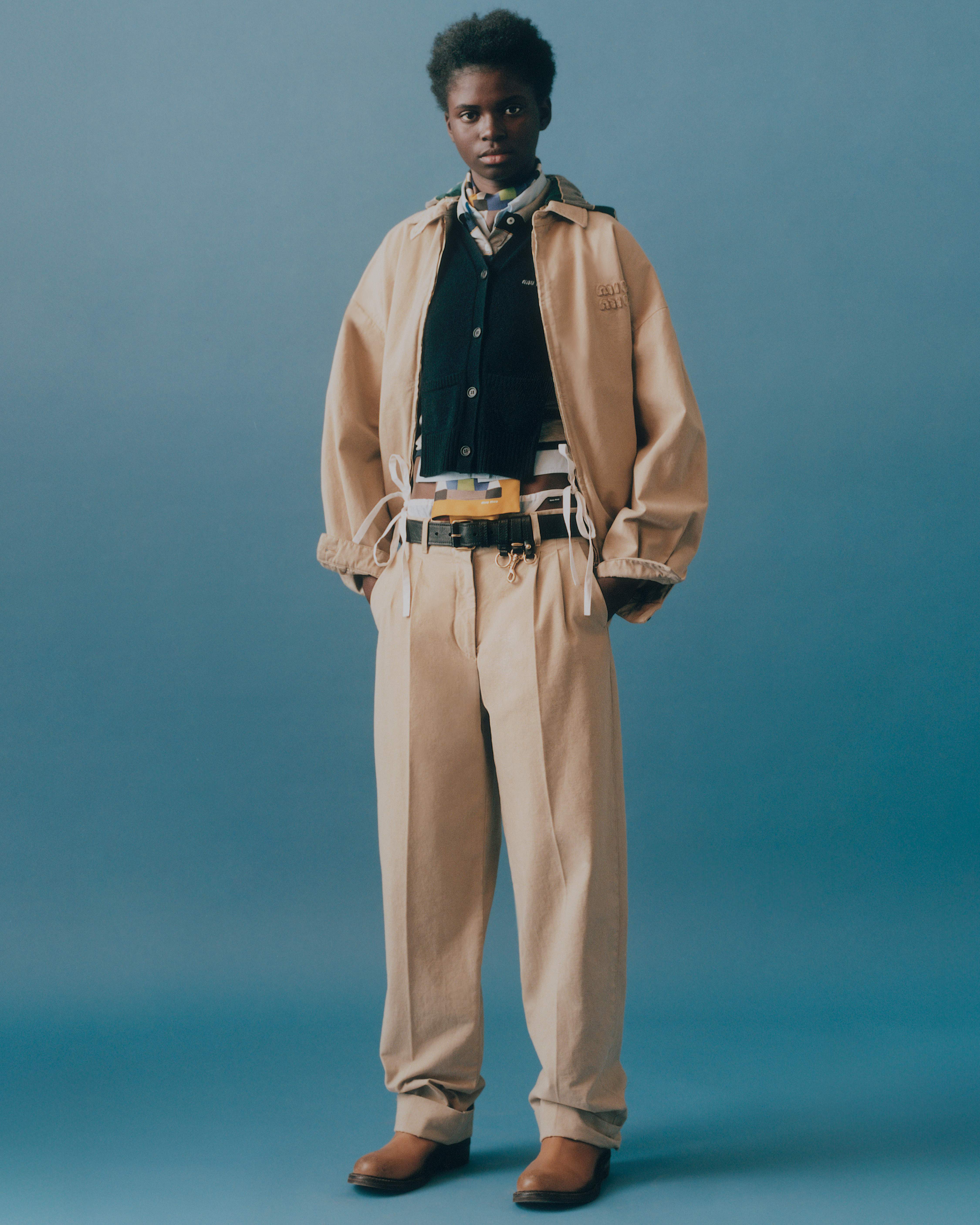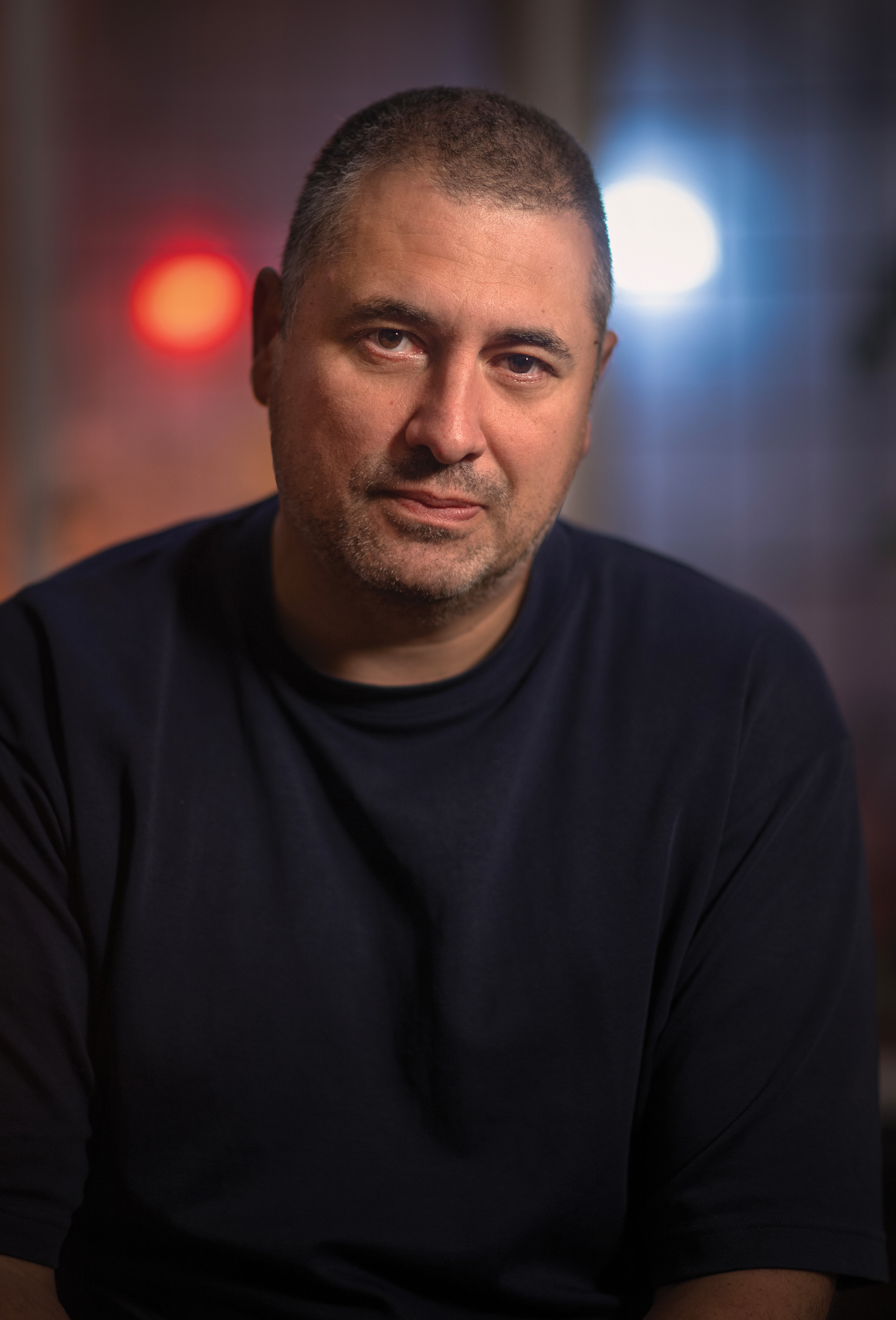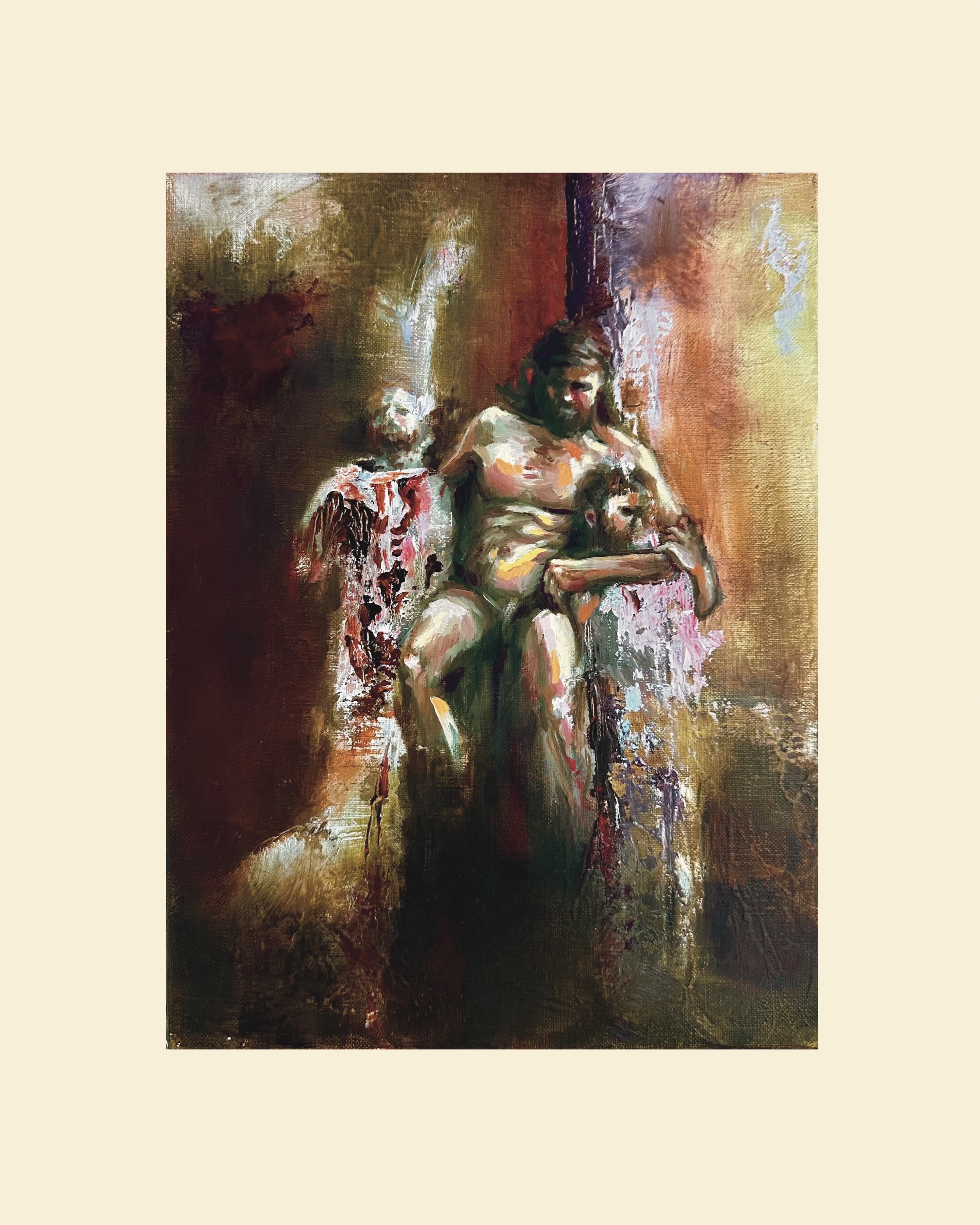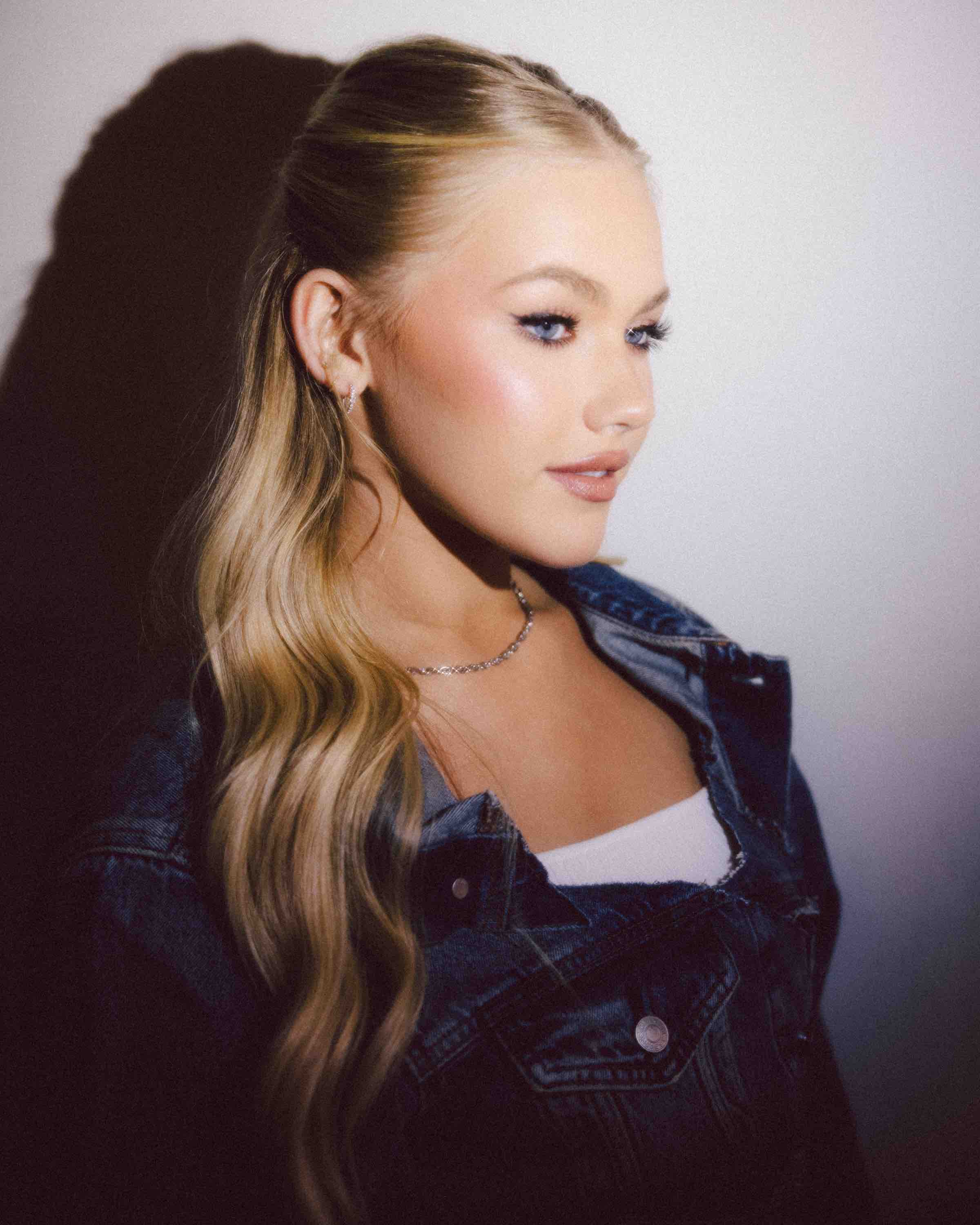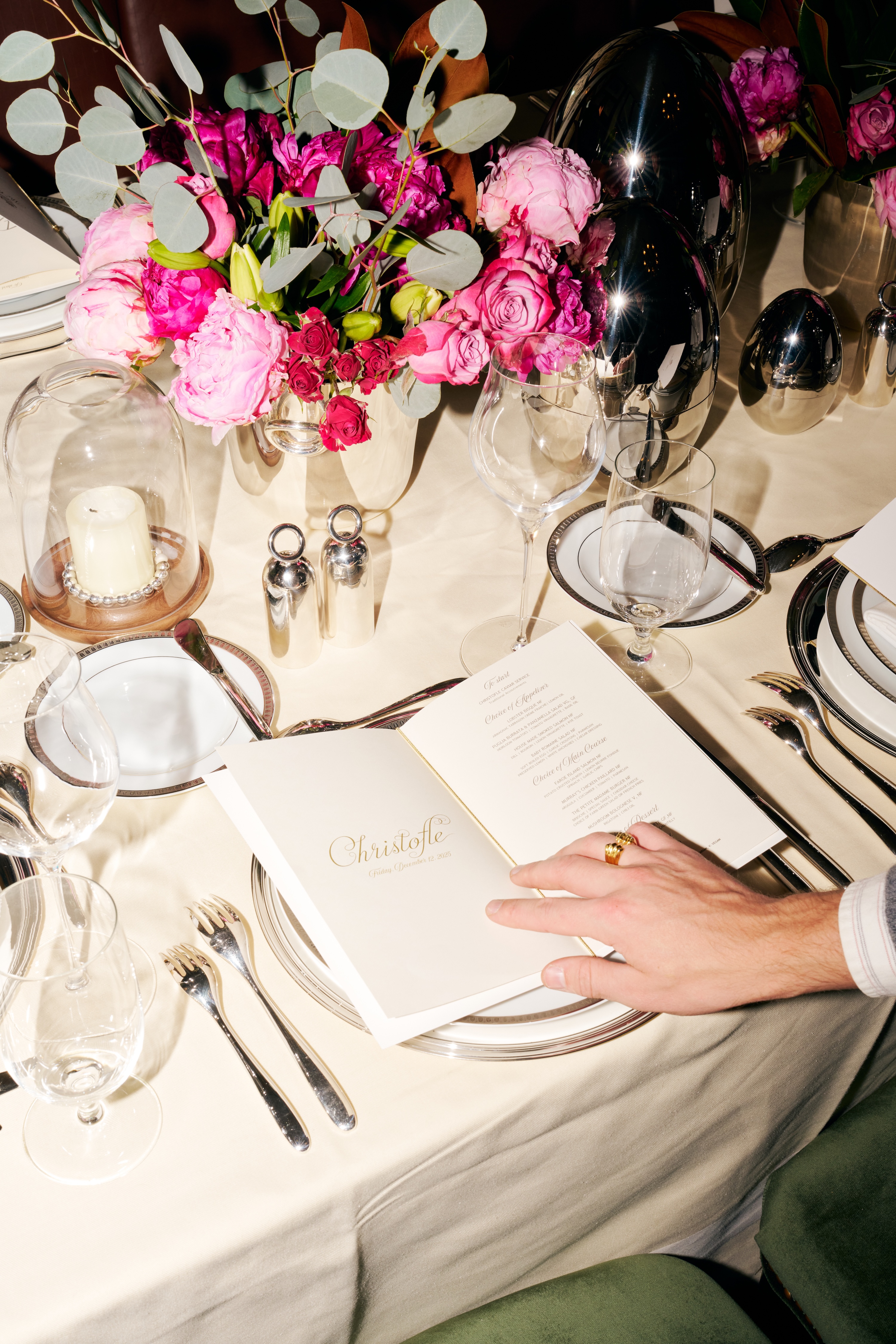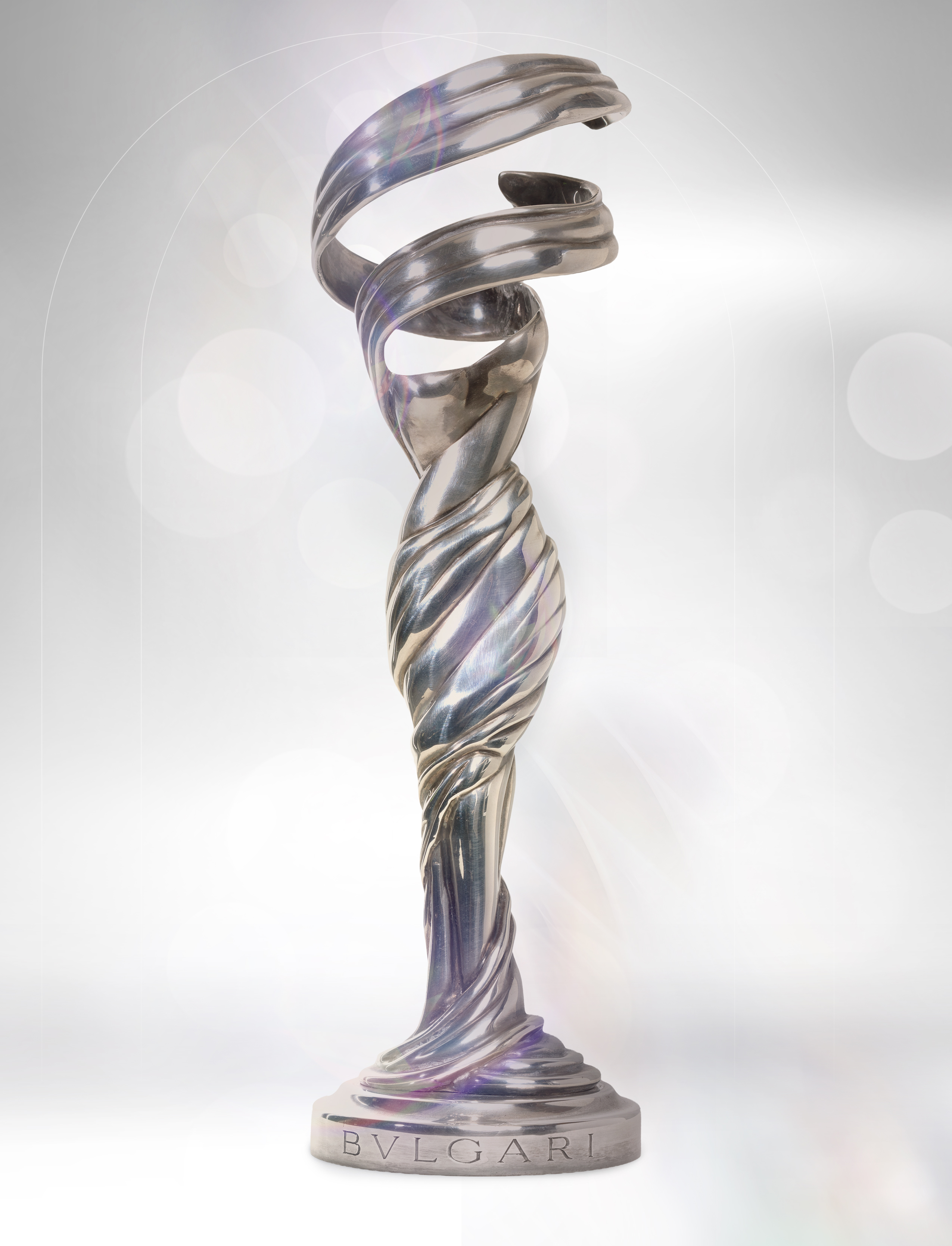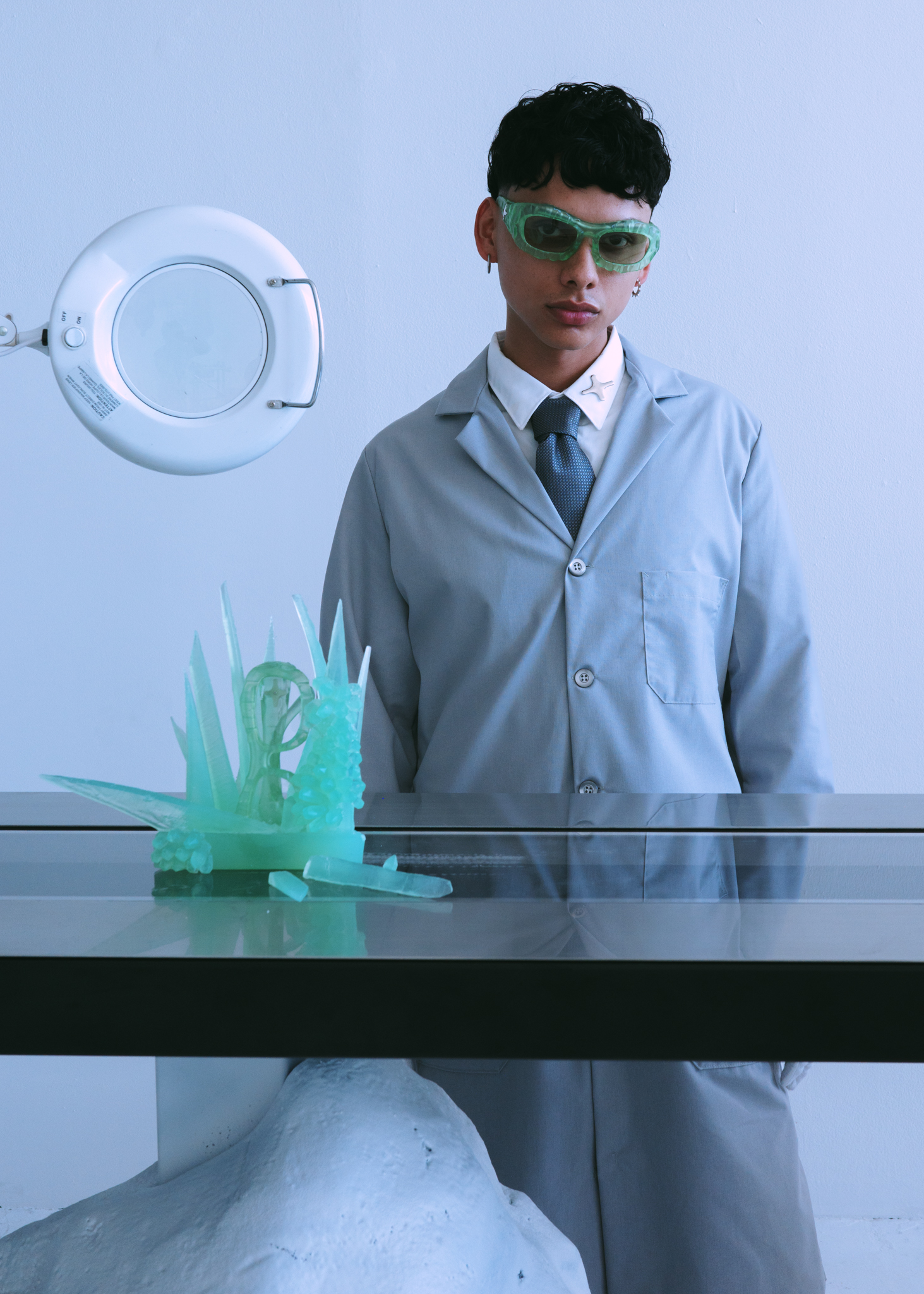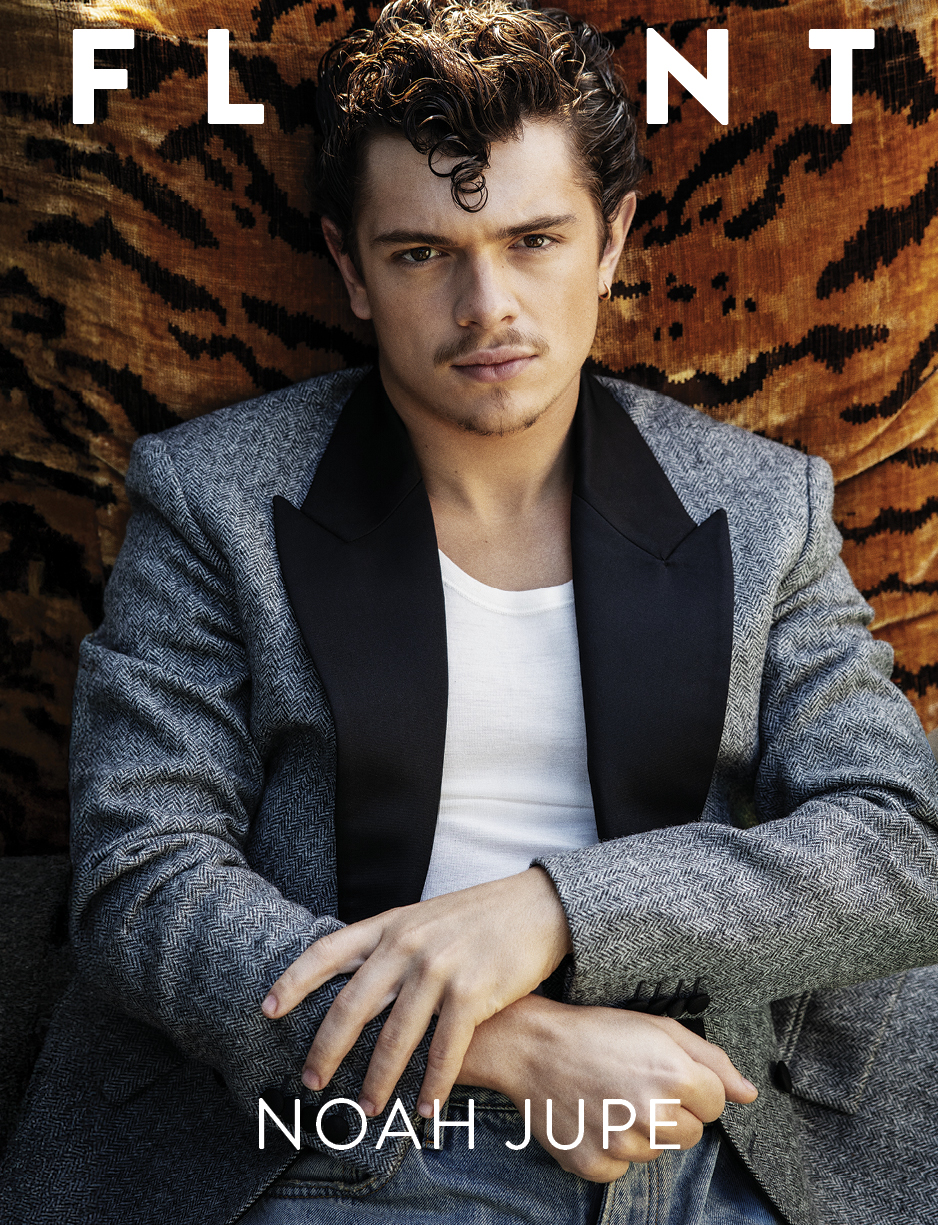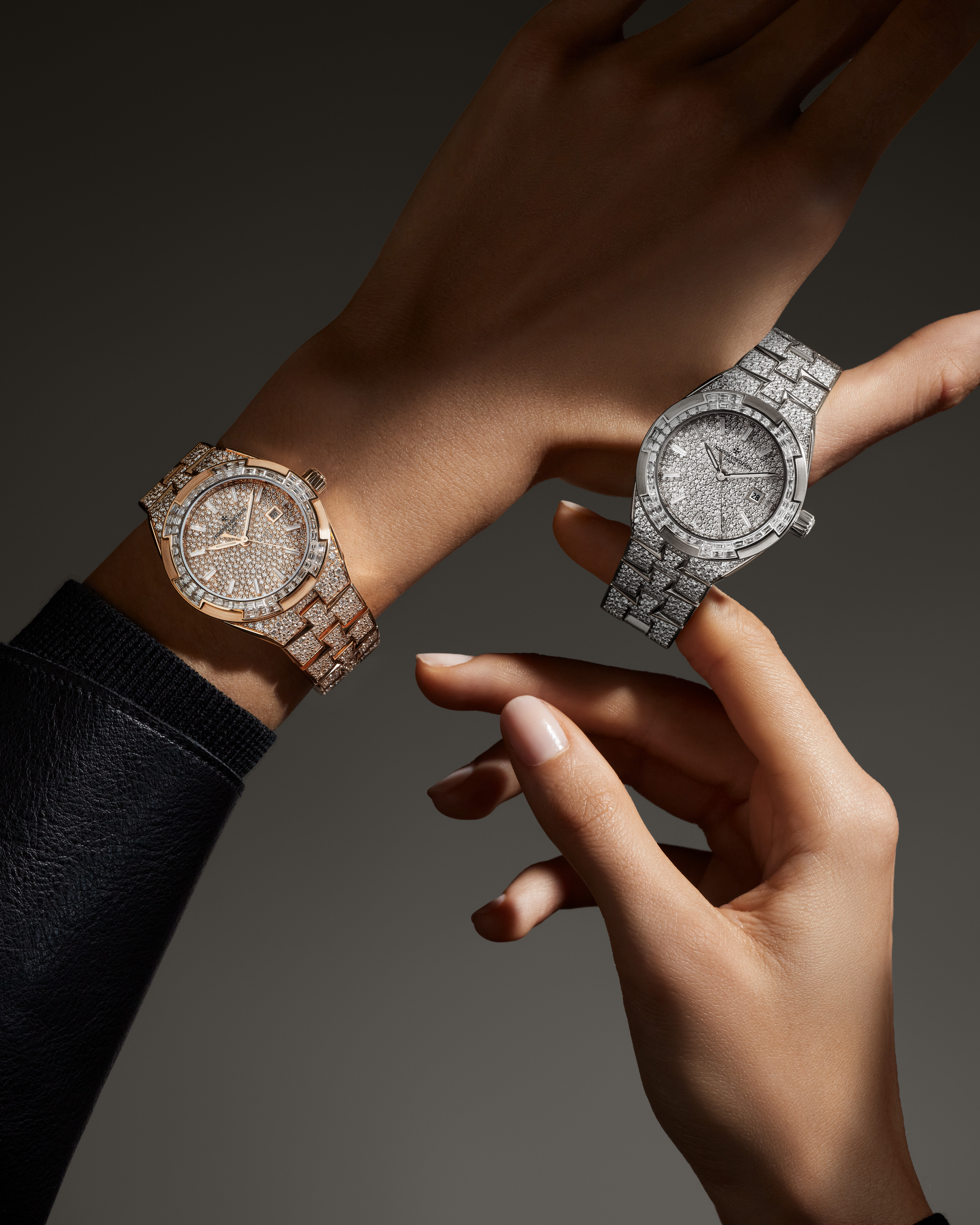

“I’m not really happy unless I’m in natural sunlight,” poet-filmmaker Jem Goulding muses. “I’m happiest in an ocean or forest. But even in New York, you see the side of a building doused in sun and it’s like heaven. My writing has always been full of light, and it is becoming a prerequisite for my visual work.” “Light” is apt metaphor for Goulding’s brightening career. Her film-poem _The Bone Echo_ received rave reviews when it showed in London a few months ago immersing her in a kind of critical light reserved for only the most burgeoning art stars.
Ensconced in London’s Soho House on a drizzly afternoon, the only source of illumination today are the glowing screens of the Macs of would-be, media moguls. But Goulding is too excited pulling out prints from her recent travels to notice: “I’ve just got back from this ridiculously dangerous three week road trip in Cuba,” she says, as a wormhole of beauty opens in the room. In one photo, a shirtless, young man stands in a jungle clearing, his hair-matted chest blending with the undergrowth, his knowing face momentarily made innocent as he stares beyond the camera at a waterfall.
Goulding’s devotion to analog formats—shooting on film rather than digital—gives her images a raw, impressionistic, sun-blasted feel, so redolent of holiday memories and Felliniesque romance that it is tempting to see them as nostalgic or idealized. But the 27-year-old nomad, who spends much of her time chasing the sunlight to remote corners of the globe, believes that this reaction is but a symptom of a larger modern problem: that we have forgotten what real life looks like. “This isn’t an effect,” she explains. “That’s what light does. What we’re used to seeing are after-effects, post-production. That’s trickery to me. I wouldn’t like my work to be seen as harkening back. I think analog film still has real relevance.”
It would seem that the public agrees as Goulding’s prints are increasingly sought after and her first travel photography book is in the pipeline. But this is only one string on a very laden bow. The breadth of her interests make her difficult to categorize as an artist, something for which she seems well aware: “I want my photographs to be as raw and intrepid as a scenes from a Hemingway novel, and I want my films to be as soulful and intimate as Leonard Cohen’s poetry,” she declares.
Goulding has built her inchoate career around “not accepting boundaries.” After an injury stalled an early stint as a dancer, she became a music journalist, but today admits, “I was rubbish. I was far too romantic and poetic. I would bleed into the articles.” Another thing that complicated her short-lived career as a journalist was her preoccupation with the visual. “In magazines, I wanted to be the journalist _and_ the photographer. They didn’t like that.”
Goulding decided to go back to her first love, poetry. At age 20, her “Breathing Space” was published in cult interiors magazine _Apartamento_—and she soon wondered whether she couldn’t combine her passion for verse with her increasing obsession with the camera. The result was _The Bone Echo_, a short film in which she narrates her own lines over dark, sexy visuals featuring models Alice Dellal, Josh Beech, and Eliza Cummings. _The Bone Echo_ swiftly became a hit and Goulding was dubbed a film-poetry pioneer.
“I don’t know why more poets aren’t making films,” she shrugs. “Poetry is imagery in words.” The next short films he is working on will be an adaptation of her poem “City,” filmed during the Aurora Borealis in Norway. “Aurora Borealis is the greatest source of natural light we have. It’s very much an evolution from _The Bone Echo_ in terms of how poetry and film can interact. After a long time in the thick of a city, your vision gets clouded.”
Leave it to a Londoner to teach us about the dangers of impending clouds.
* * *
Written by Molly Flatt
Photographed by Nacho Alegre
 
“I’m not really happy unless I’m in natural sunlight,” poet-filmmaker Jem Goulding muses. “I’m happiest in an ocean or forest. But even in New York, you see the side of a building doused in sun and it’s like heaven. My writing has always been full of light, and it is becoming a prerequisite for my visual work.” “Light” is apt metaphor for Goulding’s brightening career. Her film-poem _The Bone Echo_ received rave reviews when it showed in London a few months ago immersing her in a kind of critical light reserved for only the most burgeoning art stars.
Ensconced in London’s Soho House on a drizzly afternoon, the only source of illumination today are the glowing screens of the Macs of would-be, media moguls. But Goulding is too excited pulling out prints from her recent travels to notice: “I’ve just got back from this ridiculously dangerous three week road trip in Cuba,” she says, as a wormhole of beauty opens in the room. In one photo, a shirtless, young man stands in a jungle clearing, his hair-matted chest blending with the undergrowth, his knowing face momentarily made innocent as he stares beyond the camera at a waterfall.
Goulding’s devotion to analog formats—shooting on film rather than digital—gives her images a raw, impressionistic, sun-blasted feel, so redolent of holiday memories and Felliniesque romance that it is tempting to see them as nostalgic or idealized. But the 27-year-old nomad, who spends much of her time chasing the sunlight to remote corners of the globe, believes that this reaction is but a symptom of a larger modern problem: that we have forgotten what real life looks like. “This isn’t an effect,” she explains. “That’s what light does. What we’re used to seeing are after-effects, post-production. That’s trickery to me. I wouldn’t like my work to be seen as harkening back. I think analog film still has real relevance.”
It would seem that the public agrees as Goulding’s prints are increasingly sought after and her first travel photography book is in the pipeline. But this is only one string on a very laden bow. The breadth of her interests make her difficult to categorize as an artist, something for which she seems well aware: “I want my photographs to be as raw and intrepid as a scenes from a Hemingway novel, and I want my films to be as soulful and intimate as Leonard Cohen’s poetry,” she declares.
Goulding has built her inchoate career around “not accepting boundaries.” After an injury stalled an early stint as a dancer, she became a music journalist, but today admits, “I was rubbish. I was far too romantic and poetic. I would bleed into the articles.” Another thing that complicated her short-lived career as a journalist was her preoccupation with the visual. “In magazines, I wanted to be the journalist _and_ the photographer. They didn’t like that.”
Goulding decided to go back to her first love, poetry. At age 20, her “Breathing Space” was published in cult interiors magazine _Apartamento_—and she soon wondered whether she couldn’t combine her passion for verse with her increasing obsession with the camera. The result was _The Bone Echo_, a short film in which she narrates her own lines over dark, sexy visuals featuring models Alice Dellal, Josh Beech, and Eliza Cummings. _The Bone Echo_ swiftly became a hit and Goulding was dubbed a film-poetry pioneer.
“I don’t know why more poets aren’t making films,” she shrugs. “Poetry is imagery in words.” The next short films he is working on will be an adaptation of her poem “City,” filmed during the Aurora Borealis in Norway. “Aurora Borealis is the greatest source of natural light we have. It’s very much an evolution from _The Bone Echo_ in terms of how poetry and film can interact. After a long time in the thick of a city, your vision gets clouded.”
Leave it to a Londoner to teach us about the dangers of impending clouds.
* * *
Written by Molly Flatt
Photographed by Nacho Alegre

“I’m not really happy unless I’m in natural sunlight,” poet-filmmaker Jem Goulding muses. “I’m happiest in an ocean or forest. But even in New York, you see the side of a building doused in sun and it’s like heaven. My writing has always been full of light, and it is becoming a prerequisite for my visual work.” “Light” is apt metaphor for Goulding’s brightening career. Her film-poem _The Bone Echo_ received rave reviews when it showed in London a few months ago immersing her in a kind of critical light reserved for only the most burgeoning art stars.
Ensconced in London’s Soho House on a drizzly afternoon, the only source of illumination today are the glowing screens of the Macs of would-be, media moguls. But Goulding is too excited pulling out prints from her recent travels to notice: “I’ve just got back from this ridiculously dangerous three week road trip in Cuba,” she says, as a wormhole of beauty opens in the room. In one photo, a shirtless, young man stands in a jungle clearing, his hair-matted chest blending with the undergrowth, his knowing face momentarily made innocent as he stares beyond the camera at a waterfall.
Goulding’s devotion to analog formats—shooting on film rather than digital—gives her images a raw, impressionistic, sun-blasted feel, so redolent of holiday memories and Felliniesque romance that it is tempting to see them as nostalgic or idealized. But the 27-year-old nomad, who spends much of her time chasing the sunlight to remote corners of the globe, believes that this reaction is but a symptom of a larger modern problem: that we have forgotten what real life looks like. “This isn’t an effect,” she explains. “That’s what light does. What we’re used to seeing are after-effects, post-production. That’s trickery to me. I wouldn’t like my work to be seen as harkening back. I think analog film still has real relevance.”
It would seem that the public agrees as Goulding’s prints are increasingly sought after and her first travel photography book is in the pipeline. But this is only one string on a very laden bow. The breadth of her interests make her difficult to categorize as an artist, something for which she seems well aware: “I want my photographs to be as raw and intrepid as a scenes from a Hemingway novel, and I want my films to be as soulful and intimate as Leonard Cohen’s poetry,” she declares.
Goulding has built her inchoate career around “not accepting boundaries.” After an injury stalled an early stint as a dancer, she became a music journalist, but today admits, “I was rubbish. I was far too romantic and poetic. I would bleed into the articles.” Another thing that complicated her short-lived career as a journalist was her preoccupation with the visual. “In magazines, I wanted to be the journalist _and_ the photographer. They didn’t like that.”
Goulding decided to go back to her first love, poetry. At age 20, her “Breathing Space” was published in cult interiors magazine _Apartamento_—and she soon wondered whether she couldn’t combine her passion for verse with her increasing obsession with the camera. The result was _The Bone Echo_, a short film in which she narrates her own lines over dark, sexy visuals featuring models Alice Dellal, Josh Beech, and Eliza Cummings. _The Bone Echo_ swiftly became a hit and Goulding was dubbed a film-poetry pioneer.
“I don’t know why more poets aren’t making films,” she shrugs. “Poetry is imagery in words.” The next short films he is working on will be an adaptation of her poem “City,” filmed during the Aurora Borealis in Norway. “Aurora Borealis is the greatest source of natural light we have. It’s very much an evolution from _The Bone Echo_ in terms of how poetry and film can interact. After a long time in the thick of a city, your vision gets clouded.”
Leave it to a Londoner to teach us about the dangers of impending clouds.
* * *
Written by Molly Flatt
Photographed by Nacho Alegre
